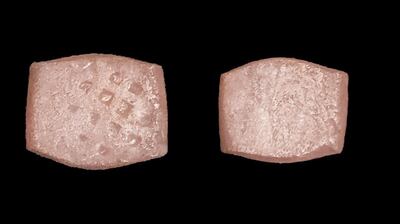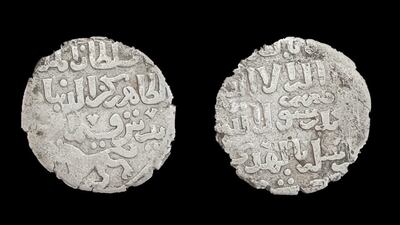A team of archaeologists in Egypt has unearthed a cache of coins dating back to the reigns of several Islamic rulers.
The team, working for Egypt’s Supreme Council of Antiquities, also found parts of coinage moulds used to mint the coins and a large weight believed to have been used to weigh them.
The haul is significant because it suggests that there was a coin-minting workshop in the area, which the team has begun trying to find, the council’s secretary-general Mostafa Waziri said in a statement.
The coins were found in the city of Esna, about 55 kilometres south of Luxor, on the western bank of the Nile River.
The mission began digging in the area last year, according to Egypt’s Ministry of Tourism and Antiquities. They started at a spot behind the iconic Temple of Esna, the city’s most visited ancient relic.
The haul included one gold coin dating back to the reign of Al Muizz li-Din Allah Al Fatimi, a Fatimid ruler whose name was given to one of the most famous streets in Islamic Cairo.

Additionally, 286 silver coins were unearthed which date back to the rules of 19 different kings and sultans from the Mamluk period (1250—1517), according to the ministry’s statement.
A number of foreign coins were found, including an Armenian coin minted during the rule of King Levon II, whose reign was contemporaneous with the Mamluk period. A group of bronze and copper coins from the Ottoman era were also found.
Among the haul were also several dinars and half-dinars, a popular currency during various Islamic rules in the Arab world, bearing the names of several prominent Egyptian rulers, including Al Aziz Billah, Najmuddin Aybak, King Badr Al Din Salamish and King Mansour Seif Al Din Qalawun.



